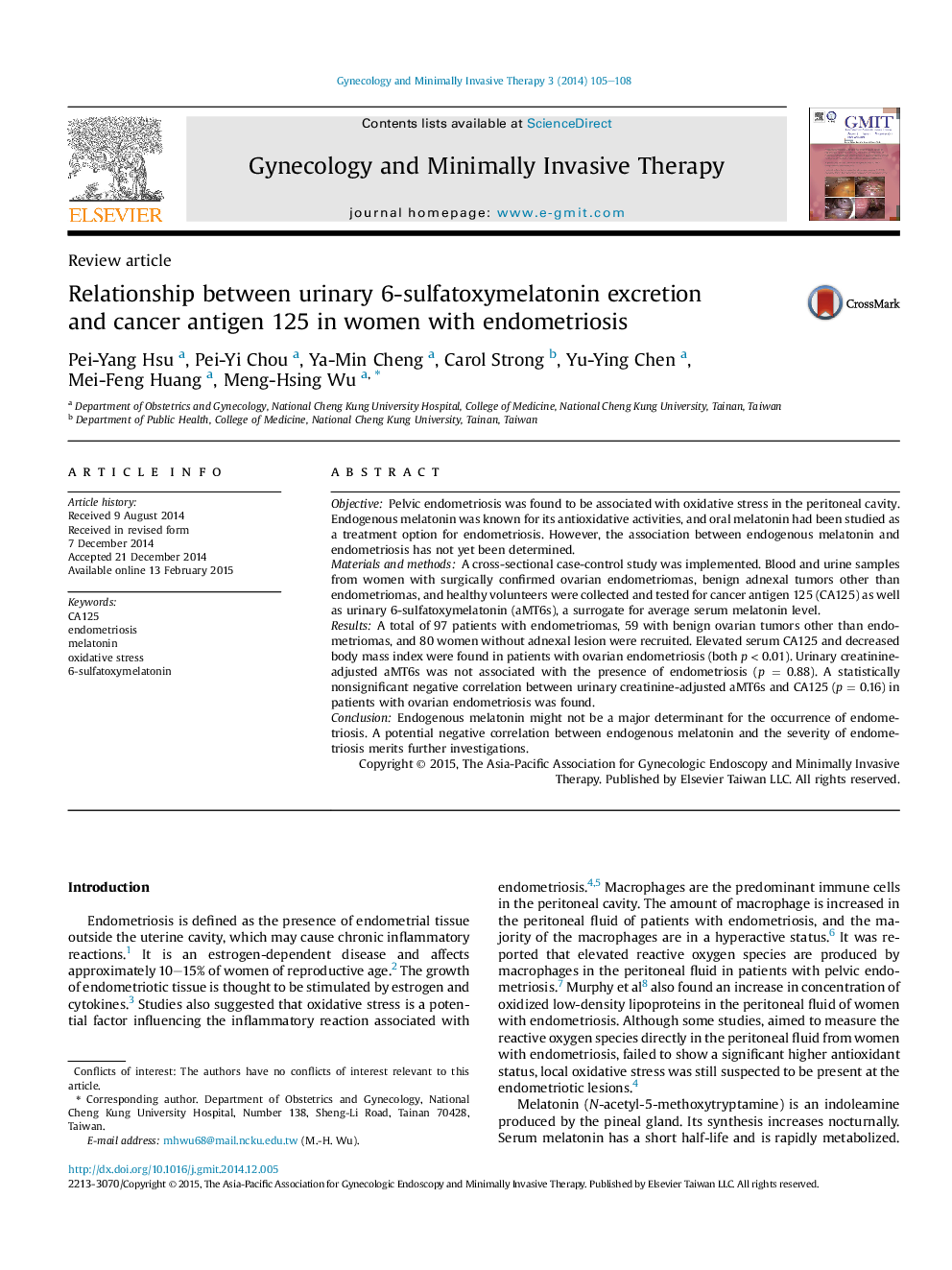| Article ID | Journal | Published Year | Pages | File Type |
|---|---|---|---|---|
| 3950561 | Gynecology and Minimally Invasive Therapy | 2014 | 4 Pages |
ObjectivePelvic endometriosis was found to be associated with oxidative stress in the peritoneal cavity. Endogenous melatonin was known for its antioxidative activities, and oral melatonin had been studied as a treatment option for endometriosis. However, the association between endogenous melatonin and endometriosis has not yet been determined.Materials and methodsA cross-sectional case-control study was implemented. Blood and urine samples from women with surgically confirmed ovarian endometriomas, benign adnexal tumors other than endometriomas, and healthy volunteers were collected and tested for cancer antigen 125 (CA125) as well as urinary 6-sulfatoxymelatonin (aMT6s), a surrogate for average serum melatonin level.ResultsA total of 97 patients with endometriomas, 59 with benign ovarian tumors other than endometriomas, and 80 women without adnexal lesion were recruited. Elevated serum CA125 and decreased body mass index were found in patients with ovarian endometriosis (both p < 0.01). Urinary creatinine-adjusted aMT6s was not associated with the presence of endometriosis (p = 0.88). A statistically nonsignificant negative correlation between urinary creatinine-adjusted aMT6s and CA125 (p = 0.16) in patients with ovarian endometriosis was found.ConclusionEndogenous melatonin might not be a major determinant for the occurrence of endometriosis. A potential negative correlation between endogenous melatonin and the severity of endometriosis merits further investigations.
